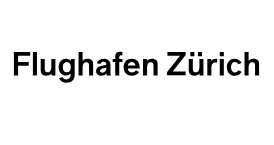The Laboratory for Mesoscopic Systems based at the Paul Scherrer Institute (PSI) is a joint laboratory between the ETH Zurich and the Paul Scherrer Institute, which is the largest research centre for the natural and engineering sciences in Switzerland. The current research focus is the investigation of novel magnetic systems at the mesoscopic scale making use of the clean rooms and large-scale facilities at the Paul Scherrer Institute, and fostering the synergies with the Department of Materials (ETH Zurich). We would like to hire a Postdoctoral Researcher in the field of 3D tomography at the nanoscale on magnetic and ferroelectric materials.
Project background
Ferromagnetic and ferroelectric ("ferroic") materials lie at the heart of modern technologies, underpinning devices from motors and actuators to sensors, memories, and emerging paradigms for computation. Despite their technological importance, many fundamental aspects of their behavior remain elusive, especially how their intricate domain structures, domain walls, and topological defects govern macroscopic functionality.
In this project, we will employ cutting-edge synchrotron-based 3D imaging techniques to directly visualize ferroic order at the nanoscale in both static and operando conditions. This unique experimental approach will provide unprecedented insights into the coupling between structure and functionality, offering key information to enhance the efficiency and performance of ferroic materials.
We are particularly excited to explore ferroic phase transitions and the emergence of complex configurations that cannot be captured by conventional methods. By combining advanced experiments with collaborations in theory and modeling, our research aims not only to deepen the fundamental understanding of ferroic systems, but also to open new avenues for their exploitation in next-generation technologies.
Job description
You will lead an exciting project exploring ferroic materials with state-of-the-art 3D imaging in static and operando conditions, and unlock new insights through advanced data analysis. The successful candidate will also be involved in the preparation of samples and their characterization using standard laboratory-based methods (optical and scanning electron microscopy, magnetization/polarization measurements, Kerr microscopy), as well as advanced synchrotron X-ray techniques at the Swiss Light Source and other international facilities. The candidate will furthermore interact closely with our theory collaborators to model and explain the observed results.
Profile
You have outstanding qualifications with a PhD in physics, materials science or a related subject, and a background in magnetism/ferroelectricity and sample preparation methods with focused ion beam. Expertise in magnetic imaging and in image reconstruction methods will be considered a strong asset. You should be enthusiastic about combining hands-on experimental work with conceptual thinking, and capable of working both independently and as part of a collaborative, international team.
We offer
You will work in Mesoscopic Systems joint laboratory between the Department of Materials, ETH Zurich and Paul Scherrer Institute. ETH Zurich is one of the world's leading universities specialising in science and technology. We are renowned for our excellent education, cutting-edge fundamental research and direct transfer of new knowledge into society. Over 30,000 people from more than 120 countries find our university to be a place that promotes independent thinking and an environment that inspires excellence. Located in the heart of Europe, yet forging connections all over the world, we work together to develop solutions for the global challenges of today and tomorrow.
> Working, teaching and research at ETH Zurich
We value diversity and sustainability
In line with our values , ETH Zurich encourages an inclusive culture. We promote equality of opportunity, value diversity and nurture a working and learning environment in which the rights and dignity of all our staff and students are respected. Visit our Equal Opportunities and Diversity website to find out how we ensure a fair and open environment that allows everyone to grow and flourish. Sustainability is a core value for us - we are consistently working towards a climate-neutral future .





